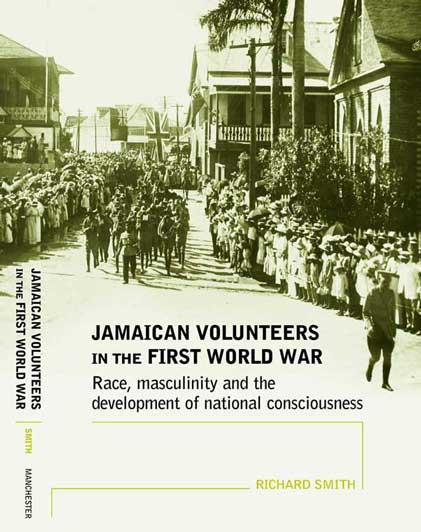Gerald A. Archambeau
Apr 8th, 2008 - 8:21 PM
 Re: West Indies Regiment in
Re: West Indies Regiment in
Jamaica in WWII
My grandfather;Inspector of Police Herbert T. Thomas of the Jamaican Constabulary,1856 to 1930 has become the forgotten man.Apart from his police work, he was a Naturalist and the author of 2-books.Untrodden Jamaica 1891,The Story of a West Indian Policeman 1927.By the Gleaner Co.Five sons from his first marriage were killed in WW-1, all from Jamaica. Harry Reid Thomas,Frances H. Thomas, Arthur C.Thomas,Benjamin Thomas,Godfrey M. Thomas. All of these served with distinction and high rank.Two of these men were awarded medals:King's medal with 5 clasps, and King's medal & dirk.Two were Captain's one a Major and a
Flight Lieutenant on Airship-R38.These are my step uncles, so any info on these Jamaicans will help me.
Awaiting your reply. --- --- --- --- --- --- --- --- ---
Replying to:
The West Indies Regiment/Caribbean Regiment went to Italy, then Egypt, then the War ended. (Aston Forrest (a cousin), quoted by Kenneth L. Welsh, June 18, 2006).
 Email
Email  infoseeker560
infoseeker560
http://pub24.bravenet.com/forum/stat...37310&cmd=show
Apr 8th, 2008 - 8:21 PM
QuoteReply
Jamaica in WWII
My grandfather;Inspector of Police Herbert T. Thomas of the Jamaican Constabulary,1856 to 1930 has become the forgotten man.Apart from his police work, he was a Naturalist and the author of 2-books.Untrodden Jamaica 1891,The Story of a West Indian Policeman 1927.By the Gleaner Co.Five sons from his first marriage were killed in WW-1, all from Jamaica. Harry Reid Thomas,Frances H. Thomas, Arthur C.Thomas,Benjamin Thomas,Godfrey M. Thomas. All of these served with distinction and high rank.Two of these men were awarded medals:King's medal with 5 clasps, and King's medal & dirk.Two were Captain's one a Major and a
Flight Lieutenant on Airship-R38.These are my step uncles, so any info on these Jamaicans will help me.
Awaiting your reply. --- --- --- --- --- --- --- --- ---
Replying to:
The West Indies Regiment/Caribbean Regiment went to Italy, then Egypt, then the War ended. (Aston Forrest (a cousin), quoted by Kenneth L. Welsh, June 18, 2006).
 Email
Email  infoseeker560
infoseeker560 http://pub24.bravenet.com/forum/stat...37310&cmd=show



 The Palestine Campaign was far away from the main conflicts of the First World War in Europe. However, the battle here against the Turks was a vicious affair because, according to Winston Millington, “the Turks were ferocious fighters.” It was not long before the machine-gun crews of the West Indian regiment were tested out. They were sent into action against a large body of Turkish soldiers and showed great coolness and self-discipline under fire.
The Palestine Campaign was far away from the main conflicts of the First World War in Europe. However, the battle here against the Turks was a vicious affair because, according to Winston Millington, “the Turks were ferocious fighters.” It was not long before the machine-gun crews of the West Indian regiment were tested out. They were sent into action against a large body of Turkish soldiers and showed great coolness and self-discipline under fire.
Comment